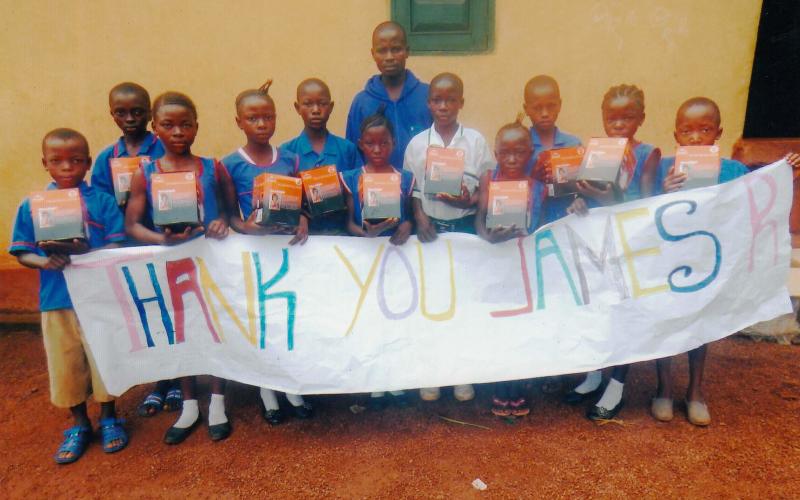
Scientists are busy working on solutions to large problems that need to be solved for the benefit of nations around the world. In the meantime, there are many equally important, small-scale problems facing the people and villages of many small countries, including Africa.
One such problem is the lack of residential access to electricity. As of 2014, 620 million people in sub-Saharan Africa live without electricity according to the International Energy Agency (IEA). [1] That year about half of all residential electricity was consumed by only 20% of households in the region.[2] Things that many of us take for granted, like refrigeration and televisions are an out of reach luxury to millions of people in Africa. For these people, just the ability to safely light a room at night would have a substantial impact on their standard of living.
For many years the answer to the most basic need for light has been kerosene lanterns. Although lanterns may do the job on your family camping trip, this primitive solution is not ideal for families trying to light their homes on a nightly basis. The light provided by lanterns is uneven and it could be harmful to people’s eyes. The fumes generated by the lanterns are a serious health hazard and the lanterns pose a serious fire risk—many homes have burned down and people have lost their lives due to lantern accidents. Then there is the cost—many families just cannot afford the cost of lantern fuel.
The proverb: “Better to light a candle than to curse the darkness” has been attributed to ancient Chinese philosophers, past presidents of the US, and Peter Pennon, who founded Amnesty International. This proverb, with one slight change, is very appropriate when describing the solution to Africa’s lighting problem: ”It is better to donate one solar light than to curse the darkness.”
While governments in Africa and abroad are trying to solve the greater electricity problems in Africa, the ultimate results of their efforts are years and decades away. The Power Africa initiative launched by US President Barack Obama in 2013 will not achieve universal electricity access in sub-Saharan Africa until 2030. Meanwhile, tens of thousands of kids living in Sierra Leone study at night using kerosene lanterns and open-flame candles.The children that are trying to do their homework in the dark right now will already be out of school by the time the electricity problems in Africa are solved.
We can provide a simple, immediate alternative to potentially deadly kerosene lanterns—solar lanterns solve all of the problems that come with using combustible fuels for light. Develop Africa is helping by providing safe, renewable, solar-powered lights to children in Africa. You, too, can help make Africa a brighter place by helping in this effort. You can take action and make a big difference in the lives of people who will truly appreciate your generosity.
Sources:
[2] https://www.iea.org/media/news/2014/press/141013_WEO_Africa_Energy_OutlookFactsheet1.pdf

